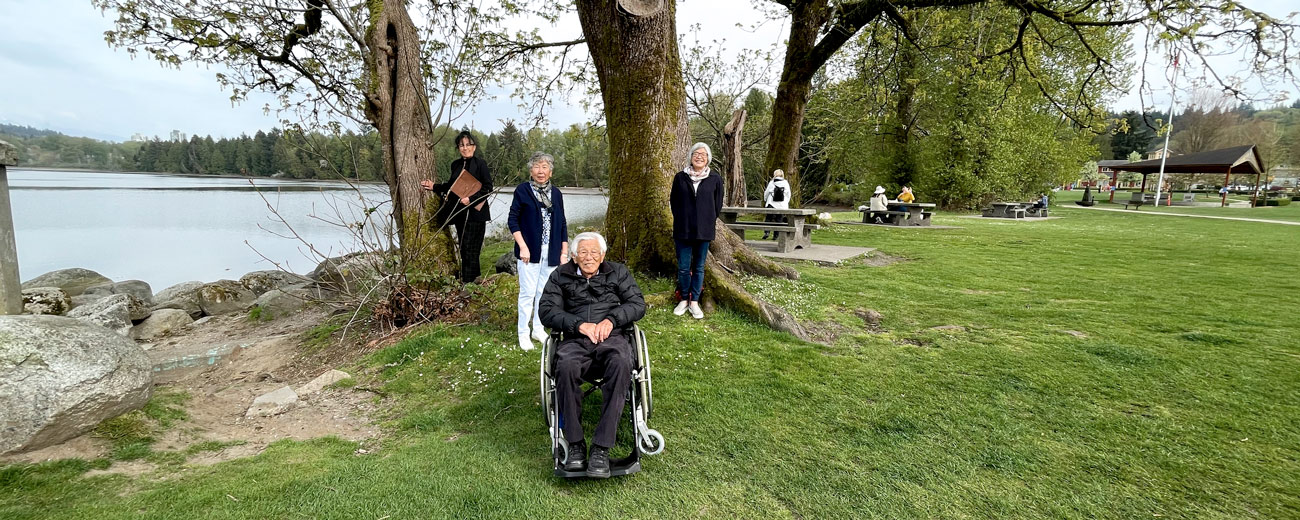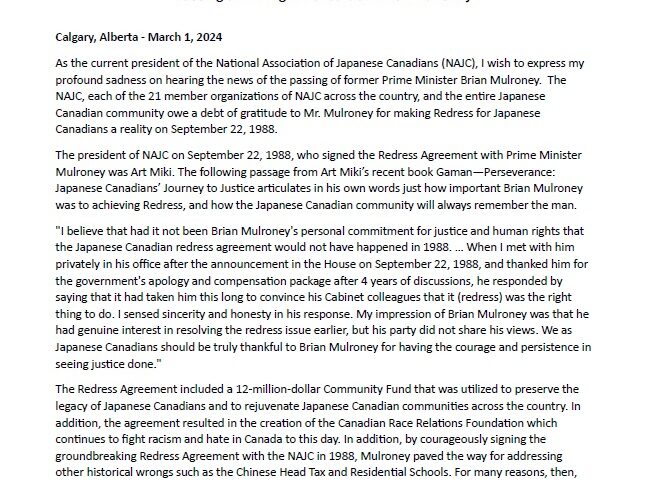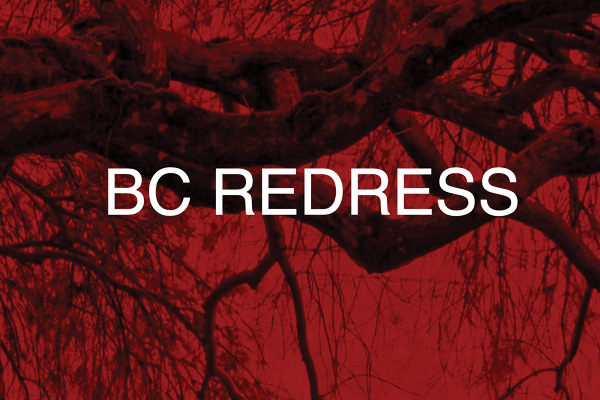The Province of British Columbia is providing the Nikkei Seniors Health Care and Housing Society with $2 million as part of its commitment to honour the traumatic internment of almost 22,000 Japanese-Canadians during the Second World War.
“This government acknowledges the role that it played in the historical wrongs committed against the Japanese-Canadians community during the 1940s,” said Rachna Singh, Parliamentary Secretary for Anti-Racism Initiatives. “This initial grant is a first step towards lasting recognition of the trauma suffered by the community. We are committed to working with the National Association of Japanese Canadians over the coming year to define recognition opportunities in 2022 and beyond.”
Nikkei Seniors Health Care and Housing Society will use the $2 million to develop and deliver health and wellness-oriented programming for Japanese-Canadian internment survivors. The society will also administer funding with the National Association of Japanese Canadians (NAJC) to other Japanese-Canadian organizations that support survivors.
“The terrible loss suffered by thousands of Japanese-Canadians in the 1940s is still impacting the community today, with many experiencing lasting health issues and trauma,” said Adrian Dix, Minister of Health. “This funding will provide much-needed health and wellness supports to internment survivors, helping them to connect with others in their community, to stay healthy and remain independent over the coming years.”
The funding will help these centres to enhance their programming for seniors in assisted and independent living, as well as the local community. This will include supports for those with dementia and Parkinson’s disease, community talks about current issues and concerns, and exercise classes to help seniors stay fit and healthy.
“Trauma affects generations, and we have seen this time and time again,” said Mable Elmore, Parliamentary Secretary for Seniors’ Services and Long-Term Care. “That’s why today is so important – we must recognize the steps needed for the healing and recognition journey for Japanese-Canadians, who are now seniors, and ensure we fulfil our promise to the survivors of these historical wrongs.”
The grant is a first step towards fulfilling a mandate commitment of the Ministry of Attorney General to honour the Japanese-Canadian community by providing lasting recognition of the traumatic internment of Japanese -Canadians during World War II. This grant responds to recommendations from NAJC for targeted funding for health and social care programs for Japanese-Canadian survivors.
Lorene Oikawa, President, National Association of Japanese Canadians
“In our work to preserve and share the history of Japanese Canadians and prevent injustices now and in the future, we also remember our Japanese Canadian survivors who are living today and they deserve the respect and supports they were once denied.”
Susanne Tabata, BC Redress Project Director, National Association of Japanese Canadians
“Building on this grant, the NAJC will continue to work with our community partners towards more health & wellness supports for our seniors, expanding on a framework to include a focus on intergenerational trauma, along with dementia care, community care, an on-line digital wellness hub, all through the prism of a pandemic.”
Ruth Coles, President, Nikkei Seniors Health Care and Housing Society
“These seniors have unique needs that stem from their lived experience of internment, forced uprooting, dispossession and displacement, causing many survivors to rebuild their lives outside of British Columbia. These actions led to challenges that have followed through life - their education was disrupted, friendship and trust taken away, and for much economic hardship, there are health issues, shame, and lack of resolution from these actions.”
Mary Kitagawa, Elder
“The elderly survivors who are living now were children who now must carry on the pain of that cruel journey that our parents and grandparents suffered.”
Cathy Makihara, past Executive Director, Nikkei Seniors Health Care and Housing Society
“To ensure the fund meets priority needs, this will be a community-based participatory grant, where the local community identifies the priorities.”




